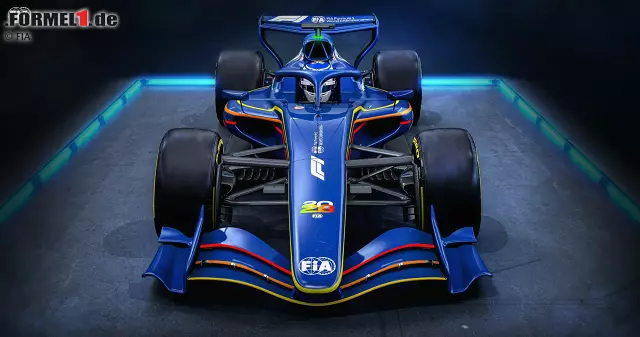Williams boss Vowles: How drivers will master the 2026 Formula 1 revolution

(Motorsport-Total.com) - Are the new technical regulations for the 2026 Formula 1 season causing drivers to panic? Perhaps, because it seems as if drivers will have to master significantly more energy management in the future to be fast. Williams team boss James Vowles insists that the drivers will have to adapt, but doesn't believe it's rocket science.
Formula 1 is facing massive changes, as both the chassis and powertrain will be modified in 2026. This marks the biggest change to the cars and philosophy in the modern era of the premier class. Energy management will play a key role, as electric power and the combustion engine will provide almost equal power.
Drivers have the opportunity to run initial virtual simulations with the new car and are already saying that a lot will change. They expect to have to do much more mental work in the car to get the most out of the vehicles.
This is what Leclerc and Albon sayFerrari driver Charles Leclerc has already spoken negatively about how he had to drive the new car in the virtual world, but the simulations still have one catch. At this early stage, driving the new car in reality will most likely be a different challenge. But Alexander Albon of Williams also expects more tasks in the car to manage energy.
First official information and pictures on the new 2026 Formula 1 regulations: What will be different in F1 and what the FIA hopes the new rules will bring! More Formula 1 videos
"It's still a bit early, but look at Formula E, which is a more extreme version of what we'll see," said Albon. "There we see how the drivers manipulate the races and qualifying—and also how they use the various means to generate performance."
"It won't be that extreme, but the drivers who have the mental capacity and understanding to implement all of this will be good," he says. "Simulator work in the winter will become increasingly important so we understand how everything works and how the driving style will change."
Vowles thinks panic is exaggeratedHis team boss, Vowles, warns against panicking. He believes the drivers will adapt quickly—and will have to. "It was difficult for each of our simulator drivers to try out the 2026 regulations, because in some cases they have to drive completely differently. It got easier the second time around, but there were still complaints."
The International Automobile Federation (FIA) released an update to its current design study for the 2026 Formula 1 car in December 2024. The images... Photo gallery
"But by the fourth time, there were no more discussions," explains the team boss. "Then it was just completely normal. I ask everyone to be careful. Look at how many times the driver has been in the simulator and then assess his response. I guarantee you, that will always have been the first reaction. Those who have driven four or five times say, 'I understand now.'"
Vowles is relying on the adaptability of the professional drivers. According to the team principal, however, they have significantly more work ahead of them. "But we still have six months of testing before we get started, and I'm sure we can solve this," Vowles says optimistically. The team will also find ways to make things easier for the drivers.
Vowles is not afraid of the new rulesThe changes for the Formula 1 season run deep : active aerodynamics and a new overtaking system that draws power from the powertrain are causing concern as it is unclear whether this will make overtaking more difficult.
But the team boss doesn't believe that. "I think there will continue to be a speed advantage on the straights, because you can play with the energy and the different modes," he explains. "Overtaking might even become more important instead of being slowed down."
Vowles also explains why he is optimistic: "The concept is that if you have a faster car, you have more tools at your disposal as a driver than you did this year - even with [the classic] DRS."
Vowles also doesn't believe the field will be as divided as it was in 2014, when new engines were introduced. However, the different chassis at the start of the regulation cycle could make a difference.
formel1






